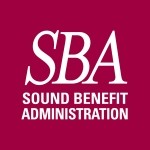SBA has been growing. Over the past several years we have brought on lots of FSAs, HRAs, HSAs, ICHRAs, QSEHRAs and EBHRAs, especially this renewal season. With all our new FSA clients, we ran into a predictable grievance, “my old third-party administrator didn’t ask for all this backup, why are you asking for it?” Given the number of times we have heard this question in the past several months, it seemed like a good time to review the claim substantiation rules to make sure we didn’t miss any changes in the law since writing my April 2018 blog article called “Urban Myth debunked: FSA Debit Card Swipes DO Require Backup.” Short answer? Sorry, folks, the rules haven’t changed. Here is what our refreshed research confirmed:
2022 research results:
-
- Every claim paid with an electronic payment (debit) card must be reviewed and substantiated
- Expenses cannot be reimbursed based on an employee’s self-substantiation. We cannot rely on a participant’s description of the expense, the amount, and the date of service.
- Requesting only a percentage of backup substantiation is not permitted (e.g. spot checking)
- Only requesting substantiation for claims above a certain dollar amount is not permitted
- Not reviewing claims that are multiples of whole dollar amounts on the assumption that they are for copayments is not permitted (e.g. a claim for $100 is auto substantiated because it might be four $25 office visit copays)
With that said, there are expenses/situations that will auto-substantiate.
What will auto-substantiate:
-
- Certain transactions involving dollar amounts that match copayments for the employer’s group medical plan.
- Certain recurring, previously approved expenses
- Certain charges that are substantiated at the time and point of sale
- Expenses incurred at merchants that use an IIAS to ensure that cards are used only for eligible medical care expenses (see current list of 94 Washington pharmacies in this list). Pro tip: if you want to avoid submitting substantiation, visit one of the approved pharmacies – and note that several of the biggest players, like Walgreens, Walmart, Rite Aid aren’t on this list .
From an employer perspective, all plans must be able to produce auditable records of all card transactions. Records must include transaction-level details that include:
-
- The name of the provider
- The date of service
- A description of services provided
- The amount of patient responsibility
OK, ok. Your prior TPA didn’t require debit card substantiation. We get it. But, we have taken a deep dive into this topic and our primary goal is to keep you – the employer – in compliance. And the price, in this case, for lack of compliance is steep. What, you ask, is the danger of not providing complete recordkeeping? Everyone in the plan gets taxed and loses their tax savings for the year. I’ll drop the mic here and go check my email for debit card substantiations.
